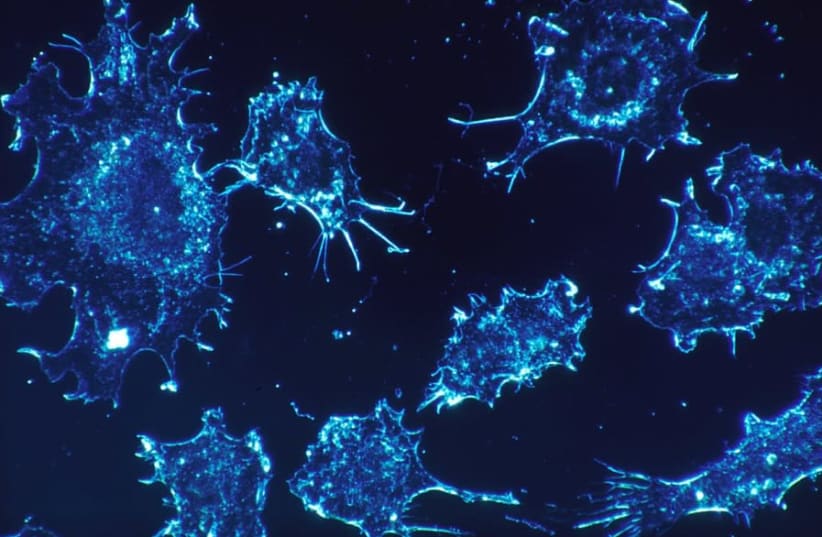In 2018, 31,000 new cases of cancer were registered and 11,464 cancer patients died. The most common form of cancer among Jewish men in Israel was prostate cancer, while the most common form among Arab men in Israel was lung cancer. Among women, the most common form of cancer was breast cancer.
Most of the deaths among men were caused by lung cancer, while breast cancer was the main cause of death among female cancer patients.
According to Prof. Lital Keinan-Boker, director at the Israel Center for Disease Control, "the incidence rate (rate of newly diagnosed cases) of cancer in Israel is higher than the world average, but Israel ranks relatively low (45th place) among the fifty countries with the highest rates in the world," in an international comparison by the Global Cancer Observatory.
"In terms of cancer mortality rates, Israel is in 89th place among the countries with the highest rates in the world, despite the relatively high incidence rate, which implies a relatively high use of early detection of common diseases, and effective and accessible up-to-date treatment, within the framework of the health basket, to all residents in Israel," she said.
The main cancers reported in about half of cases among male patients were prostate cancer, lung cancer, colon and rectal cancer, non-Hodgkin's lymphoma and bladder cancer, although prostate cancer accounted for about 20% of all invasive tumors in Jewish patients, but only 11% in Arab patients. Among Arab men, lung cancer accounted for about 19% of all invasive tumors, compared to 11% among Jewish men.
AMONG FEMALE patients, a third of all tumors were breast tumors, while 10%-11% were colorectal tumors. Lung cancer, thyroid cancer, non-Hodgkin's lymphoma and uterine cancer were among the most common among women.
Jewish Israelis reported a higher incidence rate of cancer cases compared to Arabs. In the Arab sector, the rate among men is slightly higher than the rate among women. In all populations and sexes, the incidence of invasive cancer increases with age.
A statistically significant decrease in incidence rates has been reported among Jewish males since 2007 and Arab males since 2006. A decrease was also observed among Jewish women between 2014 and 2017, while an increase was observed among Arab women from 2996 to 2007, after which it stabilized.
At the end of 2018, some 93,825 people who were diagnosed with invasive cancer between 2013-2017 – and who had recovered from the disease or were still battling it – were living in Israel, including 41,807 men and 52,018 women.
For the first time in Israel, a series of informational videos in Hebrew on immunotherapy treatment options have been produced to make information on such options accessible to patients and their families. A series of 18 videos features senior physicians from various fields of oncology explaining basic concepts about immunotherapy, in a clear and simply way. The videos were produced courtesy of the MSD medical company.
Immunotherapy is a term to describe treatments for cancer based on the immune system and is designed to work solely against cancer cells, in contrast to chemotherapy which affects both healthy and cancer cells.
The series of videos covers the immune system; different types of immunotherapy; a combination of radiation therapy, chemotherapy and immunotherapy; tests to choose the right treatment; response to immunotherapy; side effects and more.
"Immunotherapy has occupied a central place in the oncology toolbox due to its ability to successfully harness the immune system. The basics of immunotherapy affect not only oncology," said Prof. Gal Merkel, director of the Davidoff Cancer Center in Rabin Medical Center–Beilinson and deputy director of the medical center, who voluntarily edited the video series."It is surprising and interesting to know that mRNA technology, which is the mainstay of coronavirus vaccines, was originally researched as a platform for developing immunotherapy for cancer, which is currently being tested in clinical trials," she said.
"The large amount of information available on the subject of immunotherapy requires a clear and professional explanation to the general public in Israel," Merkel said. "It is a real pride for me to accompany the Israel Cancer Association in the development of the Hebrew 'dictionary' of immunotherapy, in collaboration with the best experts in the country."
The videos are available on the ICA's website.
Patients suffering from various cancers, such as lung, bladder, cervical, head and neck cancer, melanoma and more, are already receiving immunotherapy treatments. Research is being conducted to expand treatment to other cancers.
TO MARK World Cancer Day, the ICA will carry out a variety of activities online for middle and high school students, including learning about the "12 rules for healthy living" and how to reduce cancer rates and mortality through short, pre-recorded lectures by leading Israeli researchers and doctors, and informational videos about maintaining a healthy lifestyle by leading athletes.
Students will be divided into virtual "round tables" and will take part in activities to increase social involvement through social media, with a focus on TikTok. The goal of the activity is that each group will make a significant creation on social media to cause a behavioral change among teenagers.
The association also started a new campaign called Maktinim (decrease) aimed at teaching about lifestyle changes, such as walking and diet changes. It will be promoted on radio and social media and is produced by Gitam BBDO. The campaign will also be translated into Arabic and be accompanied with a short film on social media.
In a press release, the ICA stressed the importance of continuing to live an active lifestyle, even during the coronavirus pandemic, encouraging short walks or fun physical activities that contribute to mental and physical well-being.
The American Cancer Society recommends exercising for 2-1/2 to 5 hours of moderate-intensity activity per week or 75-150 minutes of high-intensity activity per week.
